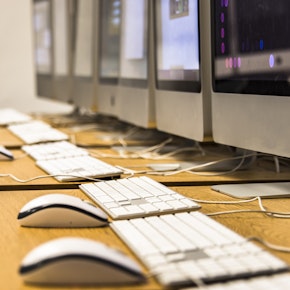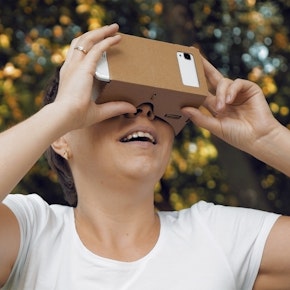Explore
Search results

Can technology bolster democracy? MIT’s Deb Roy thinks so.

Tony Fadell, creator of the iPod and the smart thermostat Nest, shares advice for inventing things that change the world.

Soon, we may be able to visualize any biological process in the human body, at any scale, in real time. Here’s what it will take to get there. Presented by Chan Zuckerberg Initiative.

Meet Lucy He, a 2022 Aspen Ideas: Health Fellow who's using technology and policy change to address critical delays in patient care caused by the "prior authorization" process.

Can the data collected through smartphones, wearable sensors, and passive monitoring devices be turned into actionable knowledge about the environmental impacts on our health? Meet three innovative researchers who are using these technologies to unlock the mysteries of Crohn’s disease and more. Presented by the Helmsley Charitable Trust.
Tech tools that can keep students engaged and help guard against learning loss are suddenly front and center.

New technologies in 2020 may demand more of our already overloaded attention. Tech titans and communications companies are releasing advances like 5G and quantum computing that speed up the pace of information flow.

What would happen if genetic sequencing were standard care for undiagnosed diseases? And how can we ensure that the future of genomics benefits everyone, not just the one percent?

Computer systems don’t anticipate all the types of people who might use them. What are the innocuous, and more problematic, consequences of this?

What if when you posted something on Twitter or Instagram or another service, the platform gave you feedback? For example, “You just upset 10,000 people.”

Love is an emotion and an instinct for sure, but the ability to love is a skill that every young person should be taught, given how important relationships and love are to every aspect of our lives.










